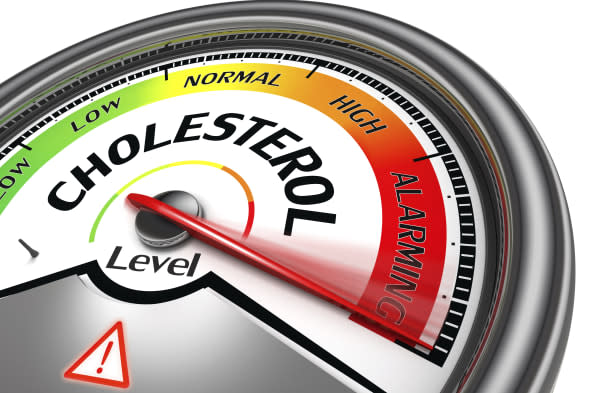Natural alternatives to statins

Pic: Getty / Don Skarpo
For more than a decade statins have been used to reduce the chances of developing cardiovascular disease amongst high risk patients, and it is estimated they save some 7,000 lives each year in the UK alone.
Related Searches
But these cholesterol-lowering drugs don't suit everyone, and muscle pain, joint pain, digestive problems, headaches and nausea are just some of the side effects suffered by a proportion of those prescribed statins. There are ways and means of reducing your cholesterol levels without prescription drugs, however, so check out these simple lifestyle changes that could lower your risk of suffering a heart attack or stroke.
Stop smoking
Aside from the damage it does to your lungs, smoking reduces the levels of good cholesterol (HDL) in your body, and causes the cholesterol to become sticky, and more likely to clog up the arteries. If you're a smoker, it's time to chuck out the cigarettes - your GP will be only too happy to offer help and advice on how to quit.
Exercise
Getting active ups the levels of good cholesterol and cuts the levels of bad cholesterol (LDL) in the body, and therefore reduces your risk of cardiovascular disease. Furthermore, it can help to lower your blood pressure - another key risk factor - maintain a healthy weight, and reduce stress. Just 30 minutes of moderate exercise five times a week (something that gets your heart pumping faster than when at rest) should stand you in good stead.
Eat well
An unhealthy diet is highly likely to push up those LDL levels, so making changes to your daily eats is essential. Saturated fats like butter should be replaced with healthier mono or polyunsaturated alternatives such as olive oil, and trans fats, the kind found in many processed foods, is to be avoided where possible.
Carbs are important, but make sure you switch to healthier whole grain varieties of bread or pasta, and stick to brown rice rather than white. Eating five-a-day means you'll be getting bags of nutrients and minerals, while a twice-weekly serving of oily fish, with its healthy omega-3s, could make your blood less prone to clotting.
%VIRTUAL-AFCSponserAds%
Cholesterol-busting foods
As well as making general changes to your diet, there are some foods that could further decrease your bad cholesterol levels. Stanol or Sterol-fortified foods like Benecol yoghurt drinks, soya protein, either from soybeans or soya milk, a handful of unsalted nuts, and either porridge for breakfast or oatcakes as a snack could all make a significant difference.
If you believe you are at a high risk of developing cardiovascular disease, or have already suffered a heart attack or stroke, speak to your doctor for advice on lowering your cholesterol.
Have you successfully managed to lower your cholesterol? What advice would you give to others? Leave your comments below...




